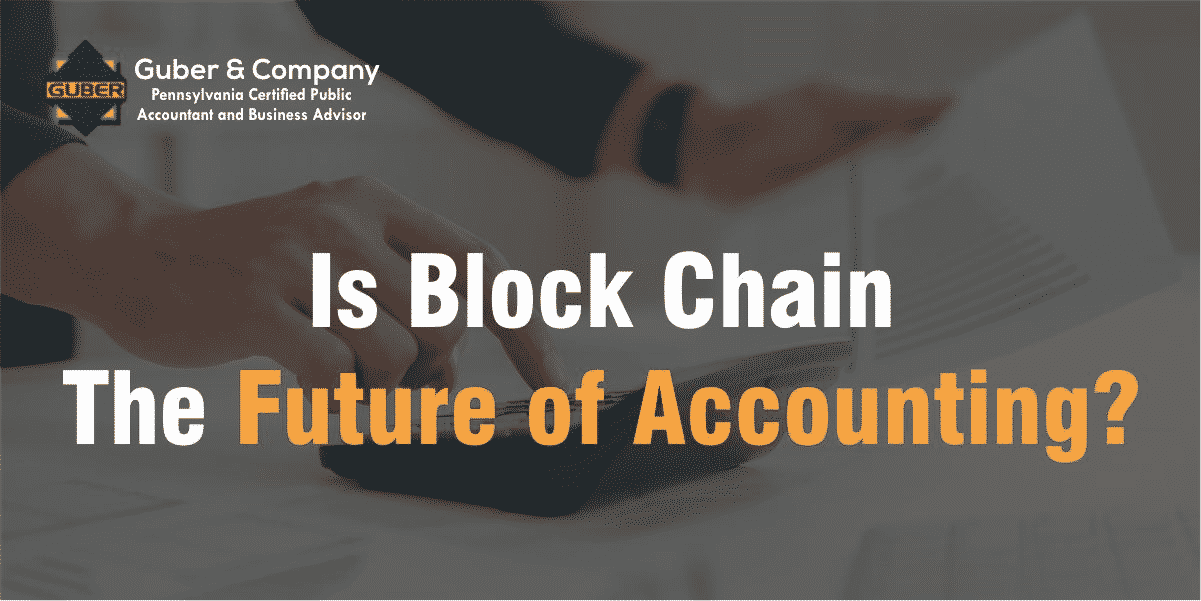Industry developments continuously usher in new paradigms and change how business is led, from paper to PCs to the cloud. The accounting profession and tax services have stood the test of time, remaining vital to ensure that business finances are sound. After all, without solid methods to evaluate all financial and tax data thoroughly, a business is not built to succeed.
Organizations have begun utilizing another option in recent years, a growing innovation called blockchain. For those of you that know a bit about blockchain or at least heard about it, you may have heard some of the associated buzzwords, such as mining, hash, and encryption, among others. Some people outside the industry may even assume that miners are those individuals who maliciously target cloud services.
What is blockchain and how is it beneficial for accountants?
To obtain a grasp on blockchain, consider a rock climber scaling the side of a mountain. Each move the climber makes is carefully determined, and they know that their whole existence hinges on their next move of sticking their pick again perfectly—in other words, clarity and organization is of the utmost importance to maximize efficiency and stay the course.
In a similar fashion, blockchain shows its worth as a game-changing tool to help organizations increment their processes and maximize cost efficiency. With blockchain, each block of information contains timestamps and other key information about the block before it. These blocks build on each other, forming—you guessed it—a chain of information. The information in any given block can’t be changed without altering the remainder of the chain. That’s why this system not only helps to maintain a flawless financial record, but helps accountants transfer assets in a manner that is virtually impervious to fraud and other digital dangers, at least as we know them today.
Until very recently, modern accounting technologies were replacing older, paper versions rather than creating entirely new systems. Blockchain, by contrast, is something completely different and industry-disrupting. In addition to the aforementioned security benefits, blockchains also show proof that each piece of value was only transferred a single time.
The accounting trendsetter to rule them all
Seeing potential for innovation with various technologies, numerous organizations have taken to creating apps for virtually all financial tasks, including following stock trends, buying and trading, or shopping for anything and everything online. But instead of following dozens of random industry trends, oftentimes into oblivion, imagine a scenario in which blockchain innovation could be utilized everywhere to maintain the financial data of practically any organization that needs the ironclad security.
Enron and Worldcom are two infamous organizations that collectively caused $250 billion of financial misfortune. These megadisasters resulted from the executives’ choices to falsely control the monetary data being given to investors. Of course, they performed their deception to arrive at their profit targets and reap the rewards, never foreseeing the catastrophes ahead.
These well-known cheats were obviously the most gigantic in history, but misrepresentations of this nature do happen in all sizes. The temptation to alter records still influences financial backers big and small. This is why the SEC has settled billions of dollars of fines for mistakes and misrepresentation.
Role of Quickbooks to handle business accounts
Apart from all this, QuickBooks is a popular accounting software that has exploded in recent years. People still believe in getting Quickbooks services to manage all their financial transactions. Entrepreneurs believe in this software, as it has effective features for handling business transactions. However, it remains to be seen if Quickbooks can keep up with the ever-changing global financial landscape.
The use of ERP systems
Enormous organizations use ERP frameworks that total information and accounting data as it streams onto the organization’s books. This meticulous process is fundamental to observing and streamlining how organizations adapt.
Proper accounting rules in business to shield financial backers’ inclinations is crucial. Choosing an accounting firm for small business is the best way to adjust to a steadily changing universe of goods and products. Something to keep in mind is that as organizations ceaselessly adjust current frameworks, inevitably they will always linger behind the tireless pace of technological advancement and the never-ending updates that ensue.
In the past, numerous organizations could perceive an offer of income each time a deal is made. Now, programming organizations can’t necessarily always pick up, or keep up with, all the income in the event of a buy. For example, if a software company were to offer an item to a client that incorporates three updates over its life expectancy, there will be four instances of income acquired: once when the base item is downloaded by the client, and one each subsequent time an update is delivered.
This expanded unpredictability of income perception has begun to run rampant and result in financially perilous dilemmas. An ERP framework can hold information, but the information requires substantially more exertion for an evaluator to work and to confirm. The best system would undoubtedly change an auditor’s role from investing tons of energy confirming exchanges to staying on top of every bit of key data—that is, moving from a place of reactivity to one of proactivity. However, without blockchain, they don’t yet have an approach to attach the entirety of their monetary information to confirmed exchanges.
Executives still operating under traditional systems would do well to examine their decisions and assessments with auditors to guarantee that everyone holds fast to proper accounting rules. After an auditor nails down a transaction or their decision is composed into a smart contract, they can execute their treatment across all exchanges with no human intercession.
We can imagine a future where organizations can snap their fingers and keep safe and flawless fiscal reports continuously and with integrity—a future where the line among tech and money is obscured and where auditors are accountants as well as analytical pioneers. We can likewise see a future where an accountant in Philadelphia and other major metropolitan areas can be the hero through the use of blockchain innovation.

